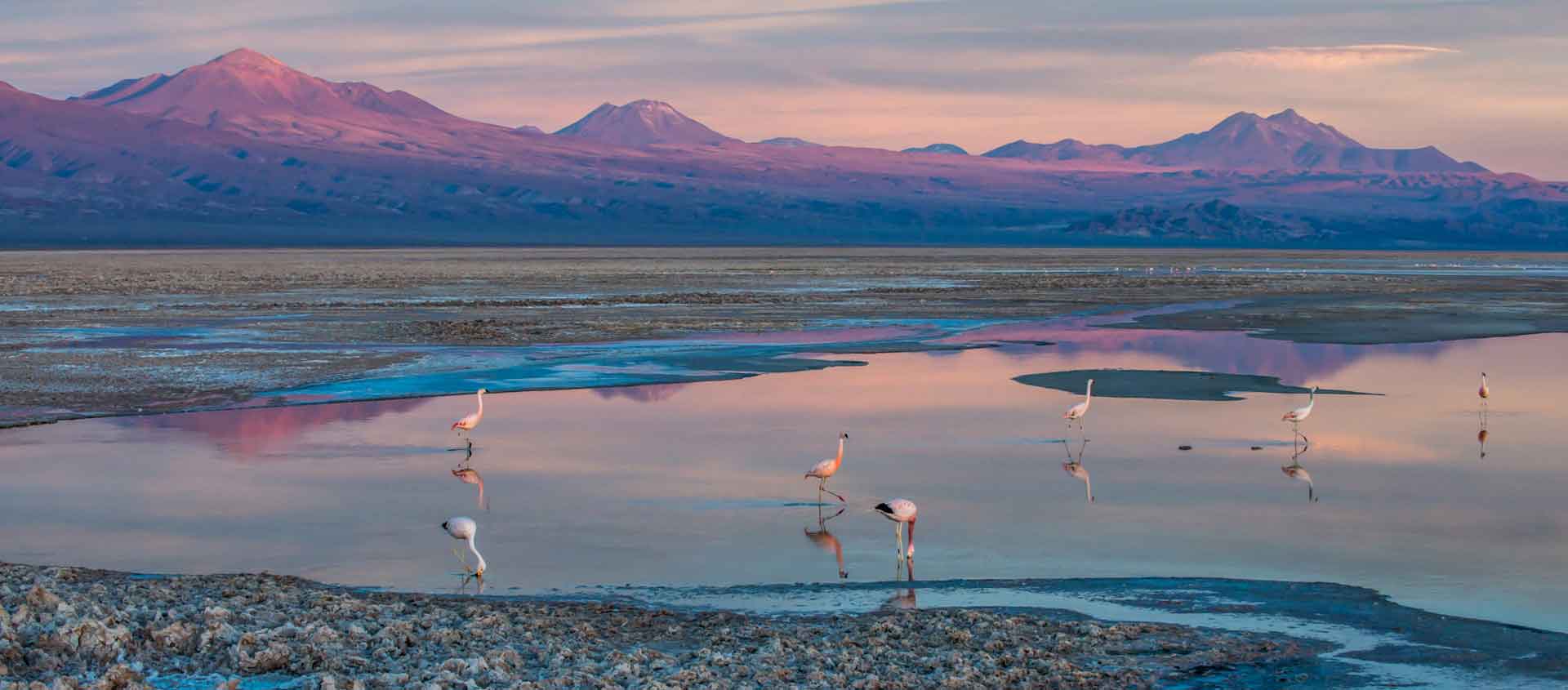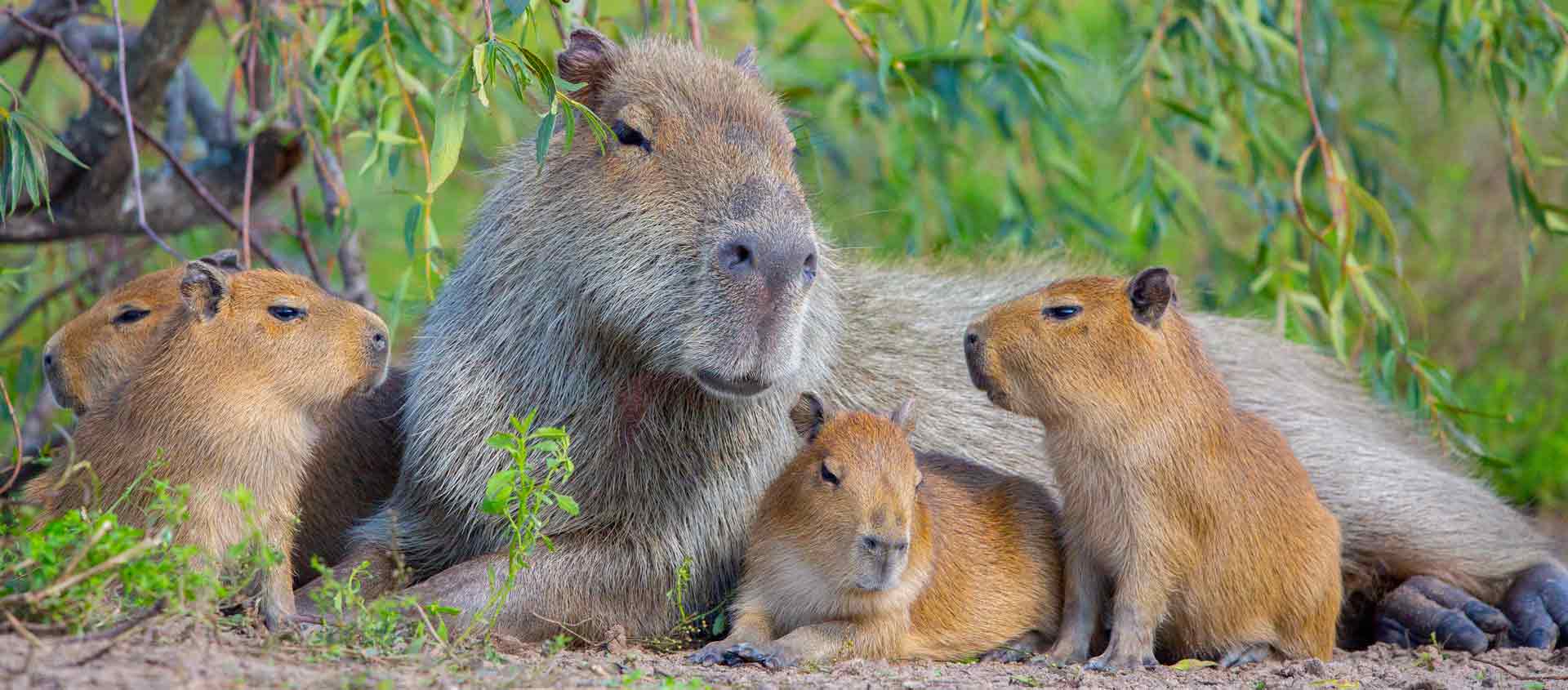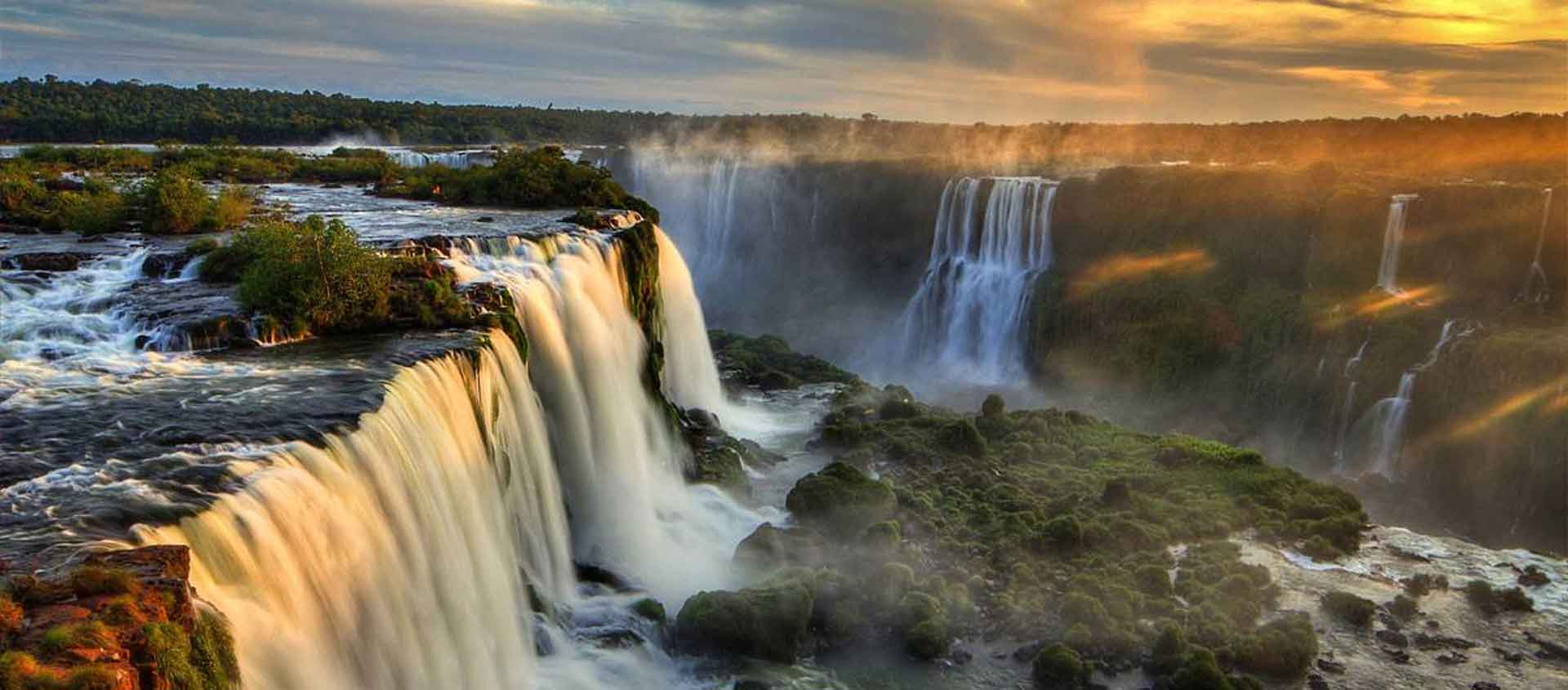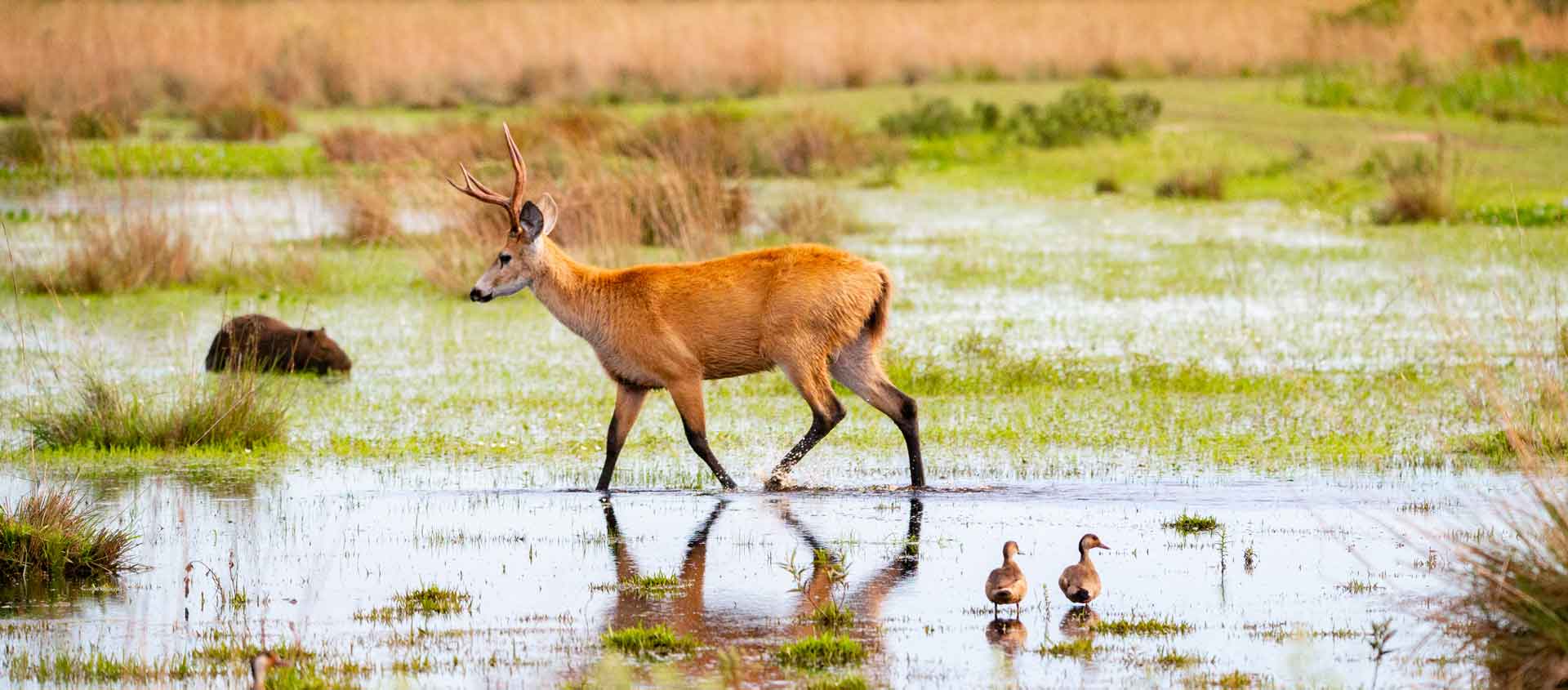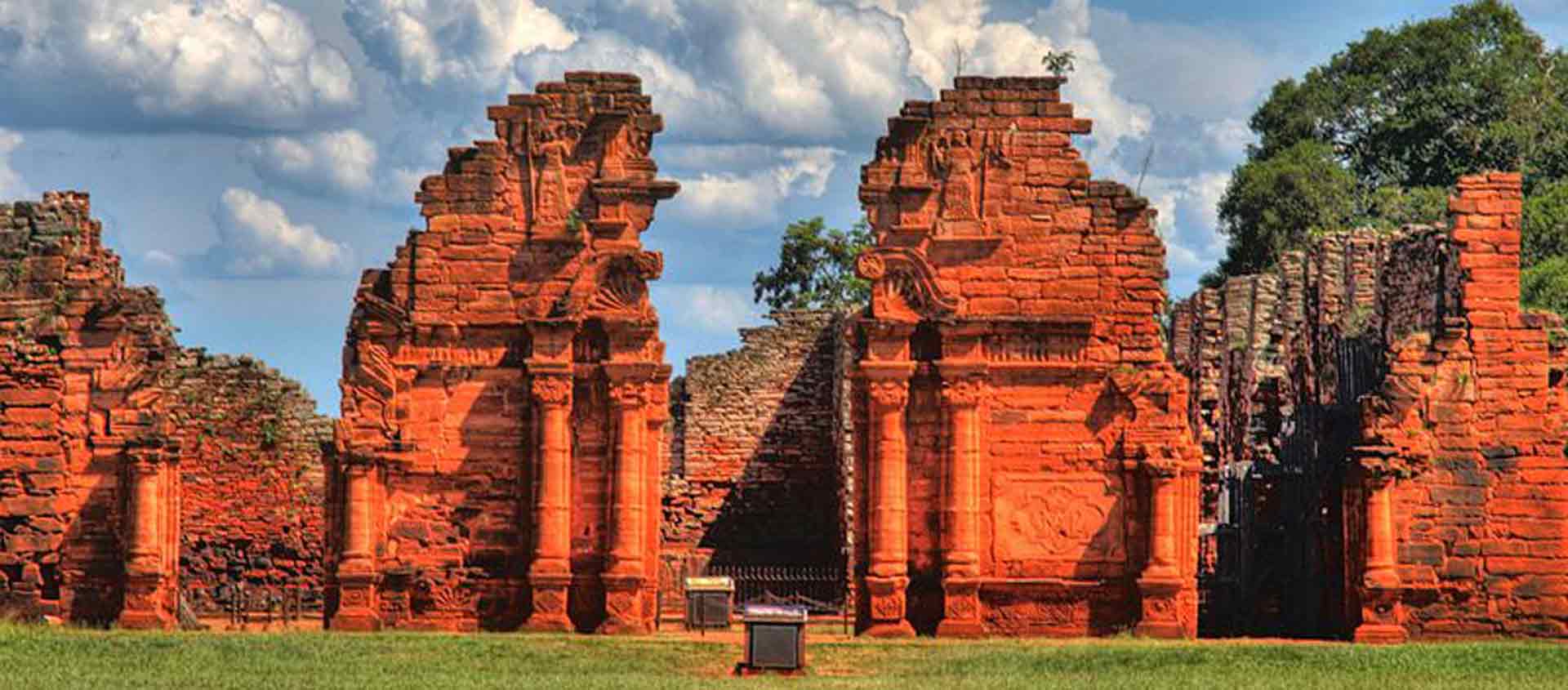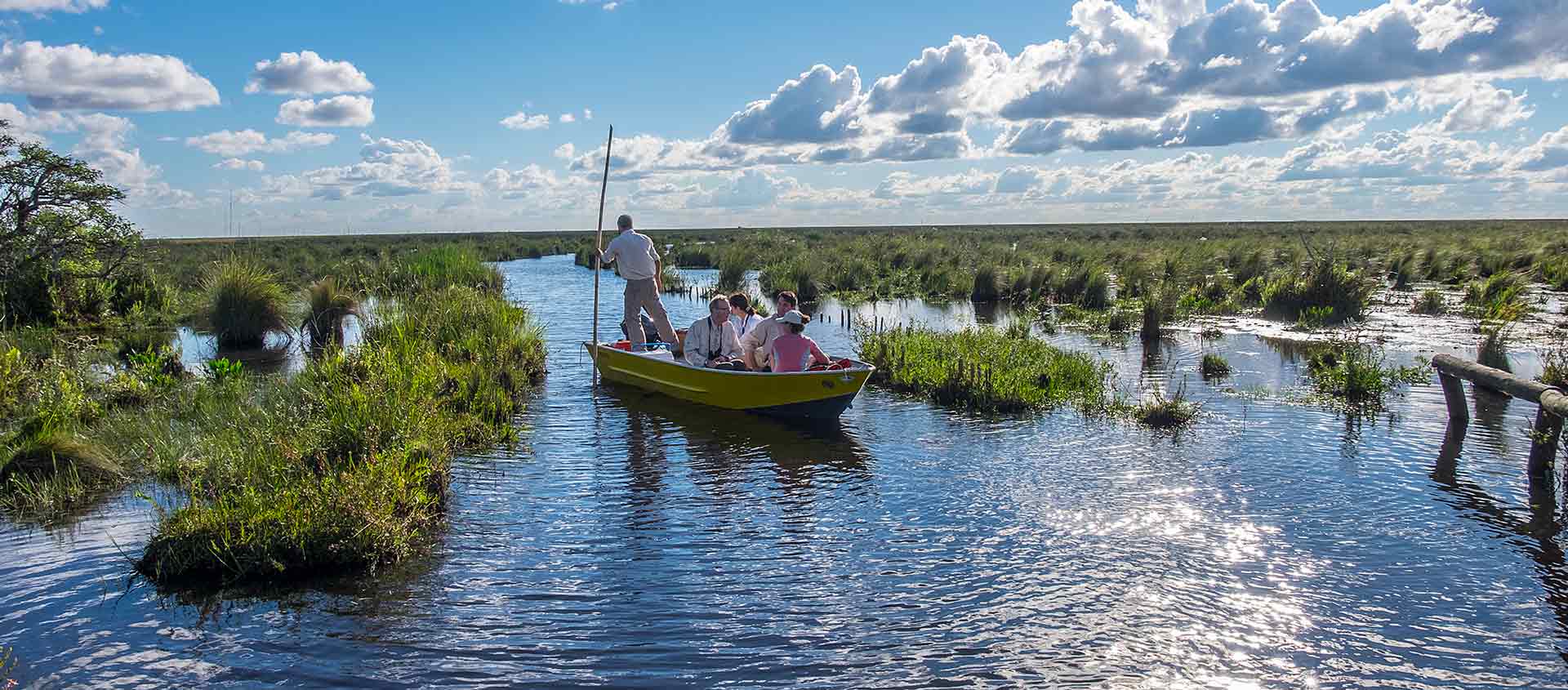Northern Argentina & Chile
October 20 – November 2, 2024
Northern Argentina and Chile Tour
When travelers think of Argentina and Chile, the far south is often what comes to mind. Indeed, there is a well-trodden tourist path through Patagonia, but Argentina and Chile are incredibly varied with their unique Euro-Latin cultural blend and their richly diverse landscapes. Join Apex to experience hidden gems of the north, from the wildlife-rich Iberá Wetlands and jaw-dropping Iguazú Falls, to the mind-bending terrain of Salta, Jujuy, and the Atacama Desert. See Capybaras, Rheas, Vicuñas, foxes, and flamingoes, and savor wines from mountaintops and verdant valleys. Get to know an amazing part of South America that few visitors ever see on this 14-day Northern Argentina and Chile Tour.
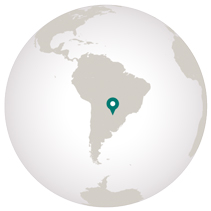
Destinations
- Travel by Air
- Travel by Road
- Travel by Boat
- Travel by Bullet Train
- Travel by Rail
- Travel by Dog Sled
-
Sunday, October 20: Arrive Buenos Aires
Arrive in Argentina’s capital and transfer to your hotel in the stately Recoleta district. Meet your fellow travelers and expedition leader at a welcome dinner at the hotel. Overnight at Park Hyatt Buenos Aires.
-
Monday, October 21: Buenos Aires / Iberá Wetlands
After breakfast, transfer to the airport for a flight north to Argentina’s border with Paraguay. Arrive in Posadas, then travel west along the Paraná River. Established in 2018, Esteros del Iberá is one of the Americas’ newest national parks. It’s the largest protected area in Argentina at 1.76 million acres, and one of the world’s largest wetlands. Iberá is home to some 4,000 species of flora and fauna—30% of Argentina’s total. Take several days to explore the park’s swamps, bogs and floating islands. This afternoon, look for abundant Red Carayá, or Howler Monkeys, and birds in the trees above you during a guided walk around your hotel. Dinner and overnight at the riverside estancia Hotel Puerto Valle.
-
Tuesday, October 22: Iberá Wetlands
After breakfast, venture by motorboat into the scenic channels that penetrate the Paranaense Jungle. This jungle, located between Argentina, Brazil and Paraguay, is one of the most biodiverse forests on the continent. It’s a natural shelter for large cats, such as the Jaguar, Puma, and Ocelot, as well as parrots, macaws, and countless other bird species. Other animals to look for include Tapir, peccary, Vinegar Fox, anteater, and Lagoon Turtle. If you prefer, you may opt to kayak these waters, floating along with the gentle current, the Ceibo trees, River Alder, Hawthorn, Coronillo and Curupí surrounding you. After lunch, tour the hotel’s 35-acre park. Visit the tree nursery, dedicated to the production of Grevillea, Kiri, and Yerba Mate seedlings, and the organic vegetable garden. Dinner and overnight at Hotel Puerto Valle.
-
Wednesday, October 23: Iberá Wetlands
Today, head into the wetlands in 4x4s for a veritable safari through Iberá’s fields, plantations, and marshes. Look for Caiman, Capybara, Marsh Deer, otter, and countless bird species such as Purple and Common Gallinule, Wattled Jacana, Crested Screamer, Bare-throated Bellbird, Harpy Eagle, and Vinaceous Parrot on this full-day excursion. Dinner and overnight at Hotel Puerto Valle.
-
Thursday, October 24: Iberá Wetlands / Iguazú Falls
After breakfast, head back to Posadas. Drive northeast to the Brazilian border, and Iguazú. Stop en route to visit the San Ignacio Miní ruins, the impressive remains of a mission to the Guaranís founded around 1610, one of a series of Jesuit Missions spread across Argentina, Brazil and Paraguay. Enjoy lunch at a local restaurant, then continue to your hotel, located just steps from the magnificent Iguazú Falls, one of the Seven Natural Wonders and a UNESCO World Heritage site. Iguazú, meaning ‘big water’ in the local Guaraní language, has some 275 individual falls and cataracts making this the largest waterfall system on Earth. Dinner and overnight at Melia Iguazú Hotel.
-
Friday, October 25: Iguazú Falls
Spend the day on a guided excursion into the Argentinian side of Iguazú Falls National Park. This side is filled with myriad paths, walkways and stairways through the pristine subtropical forest surrounding the falls. Take the Waterfalls Train to the “Devil’s Throat,” the largest and most impressive of the falls. Vapor rises constantly from this 450-foot-long, 240-foot-tall waterfall. Watch the daredevil “vencejos,” birds that are unique to Iguazú and spend their days swooping and diving among the falls. Walk the Lower Circuit, looking for antbirds, toucans, manakins, and a variety of parrots as you make your way to several more waterfalls. Dinner and overnight at Melia Iguazú Hotel.
-
Saturday, October 26: Iguazú Falls / Salta / Cafayate
Today fly west to Salta, the provincial capital and best-preserved Spanish colonial city in Argentina. Head south out of the city toward the Cafayate Valley, known for its exquisite Torrontés wine production. Drive past the foothills of the Andes, then through the spectacularly colorful Quebrada de las Conchas canyon, formed 50 million years ago. A walk into the canyon allows you to get a closer look at the stunning geological formations. Continue on to the Cafayate Valley, economically significant during the colonial era for its cattle breeding and production of spices, grains and wine. Today, it is the heart of high-altitude wine country. Visit the town’s handicraft markets on an evening stroll, before dinner and overnight at Patios de Cafayate Hotel.
-
Sunday, October 27: Cafayate
After breakfast, visit the Museo de la Vid y el Vino (The Vine and Wine Museum). Learn about the high-altitude winemaking process—how the extreme temperatures and sun exposure, along with poor soil quality, combine to produce the full-bodied reds and fruity whites of this region. Visit several area vineyards, then stop for lunch. In the afternoon, you’ll have the opportunity to take a hike to explore the Calchaquí Valley, known for its red rock formations. Dinner and overnight at Patios de Cafayate Hotel.
-
Monday, October 28: Cafayate / Purmamarca
Today, gear up for a long drive north, to Jujuy province. En route, stop at the Estancia El Bordo de las Lanzas, dating back to 1609. Enjoy lunch and stroll the estate’s beautiful grounds before continuing north to the Quebrada de Humahuaca, the valley which follows the line of the ancient north-south Camino Inca trade route. The route has been deemed a UNESCO World Heritage site for its remarkable preservation of life over the past 10,000 years. Today’s destination, the town of Purmamarca, sits cradled in one of the route’s most remarkable sites, the Cerro de los Siete Colores (Hill of Seven Colors), a vibrant geological formation that appears to glow in the light of the rising sun. Explore the sun-dried brick homes and a 17th-century Spanish colonial church in Pumamarca. Dinner and overnight at Manantial del Silencio Hotel.
-
Tuesday, October 29: Purmamarca
This morning, visit nearby Pucará de Tilcara, an incredible archaeological site built in the 10th century by the Omaguaca tribe, which saw the expansion of the powerful Inca empire into the region, followed by the Spanish conquerors. Stop in the sleepy town of Uquía, notable for its historic church which boasts paintings of gun-toting angels. Enjoy a lunch of regional delicacies at a local restaurant, before heading to Humahuaca town. Stroll its charming streets, then head to the mountains of Hornocal, the stunning beauty of which is caused by a limestone formation exposed in the range that extends from Salta through the Quebrada de Humahuaca, and on to the Bolivian Altiplano to Peru. Return to Purmamarca for dinner and overnight at Manantial del Silencio Hotel.
-
Wednesday, October 30: Purmamarca / San Pedro de Atacama, Chile
Today, bid farewell to Argentina as you head into the Andes toward Paso de Jama, the border with Chile. Look for Vicuñas—the higher-altitude relatives of Llamas and Guanacos—viscachas, and condors. Stop at the Salinas Grandes, or Great Salt Flats, standing at 11,320 feet above sea level, and seeming to stretch forever in all directions. Dotting the blinding white expanse is the odd turquoise pool. After being cleared to cross the border at Paso de Jama, travel down to San Pedro de Atacama. Considered the archaeological capital of Chile, indigenous peoples and world travelers mingle in this ancient village with dirt streets and adobe houses. Dinner and overnight at Nayara Alto Atacama.
-
Thursday, October 31: Atacama
Ascend into the nearby Los Flamencos National Reserve to the Altiplanic Lagoons of Miscanti and Miñiques, oases of brilliant blue. They may feel almost like a mirage as your head swims due to the 13,000-foot elevation. Spend some time walking around Miscanti before visiting neighboring Miñiques Lagoon, one of the last breeding spots of the Horned Coot, which feeds on the lake’s algae. Other species to look for are Chilean and James’s Flamingoes, Puna Plovers, Juarjual Ducks, Andean Gulls, and the endemic Fabian’s Orange-bellied Lizard. Dinner and overnight at Nayara Alto Atacama.
-
Friday, November 1: Atacama
Today is your day to choose your adventure. The Nayara Alto Atacama offers a wide variety of half and full day excursions that suit every fitness level and interest. Spend the day hiking in the highlands of Jauna. Hike through the Garganta del Diablo (Devil’s Throat) Canyon. Explore the rock art of some of the first inhabitants of the desert over 1,500 years ago. Visit the Rainbow Valley, named for the multicolored nature of its hills and streams formed by different mineral deposits. Return to San Pedro de Atacama for dinner and overnight at Nayara Alto Atacama.
-
Saturday, November 2: Atacama / Calama / Santiago / Depart
This morning, head to the Calama airport for the group flight south to Santiago. Depart this evening on your international flights home.
Details
- October 20 – November 2, 2024
- Leaders Kevin Clement
- $24,980 Per Person Rate
- $29,360 Solo Rate
- 14 days Trip Length
- 12 guests
- Buenos Aires Start
- Santiago End
Call us to reserve your spot on this exciting expedition!

